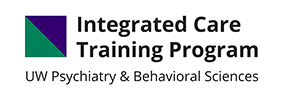The Challenge
Although effective treatments for most forms of mental illness exist, many people don’t receive the care they need. Most Americans with common mental health problems are exclusively seen by primary care providers who are often ill equipped to provide effective treatment. As few as 20% of patients started on antidepressant medications in primary care show substantial clinical improvement. Patients who are referred to a mental health specialist often don’t follow through due to the stigma surrounding mental illness, the associated costs, or other barriers. As a result, only about a third of people diagnosed with a serious mental illness receive minimally adequate treatment.
Our Approach
- We use new approaches and technologies to connect existing mental health specialists to people who suffer with mental illness and address the problems of access and quality in mental health.
- We help build integrated care programs that provide both medical and mental health care in primary care and other clinical or hospital settings.
- Offering mental health treatments in primary care is convenient for patients, can reduce the stigma associated with treatment for mental disorders, builds on existing provider-patient relationships, and can help improve care for the millions of patients who have both medical and mental disorders.
Integrated Care Training Program
Department of Psychiatry and Behavioral Sciences
University of Washington
1959 NE Pacific Street, Box 356560
Seattle, WA 98195-6560
uwictp@uw.edu

